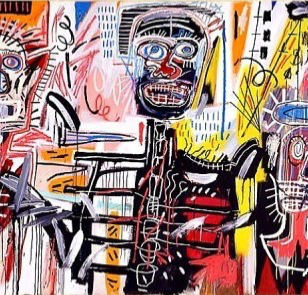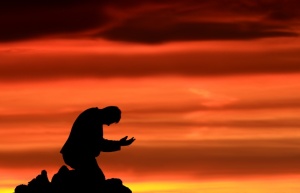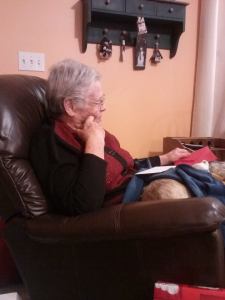
An intimate moment between Trish and Hakan, who traveled from Sweden
It’s not very compelling to read that I was indifferent about going somewhere.
My journalism professors would call this a “bad lead.” No hook to draw the reader in. “Indifferent” isn’t exactly a power word, more of a lame adjective where a good verb would coax the reader along.
But it fits. I’ve been a flimsy cliche. I recently agreed to go to a reunion but with the qualifier that “I’m not really a reunion sort of guy.” Like those people who boast that they don’t watch “Game of Thrones,” do I somehow think this makes me superior?
What it makes me is insufferable. And full of shit. Some friends from an adventure more than three decades ago showed me that.
I am a member of Up With People Cast C ’86 and we aren’t an indifferent group. One of our own is enduring a decade of suffering that should break the spirit. Instead, she has transformed it into spirited poetry, a lyrical lesson in whole-heartedness. Trish Wilson-Geyling and her family lost their youngest member, 8-year-old Rudy, in July 2017. He died suddenly from a congenital heart syndrome. Before he was born doctors said Rudy would not survive without utmost medical intervention. In a blog called “Rudy’s Beat” Trish chronicled the joy and exhaustion, beauty and terror, adventure and mystery of her family’s short time with the buoyant little boy who possessed the same bottomless supply of smiles as his mother.

Rudy

Trish and Rolf Geylimg donning TrishFest hats
The words of Trish and her husband Rolf invited us in as they savored every moment, every smile, every tear, every overwhelming fear. They asked for our prayers when holding on to hope demanded more hands. Trish’s writing expressed the heaviness of fragile hope, but it never outweighed mindfulness, faith and gratitude. Upon Rudy’s death Trish wrote, “The doctors would have counted it a victory to have him home for six weeks. We had him home for eight years.”
Two months after Rudy’s death, before they had time to unpack their grief, life ambushed the family again. Trish was diagnosed with ALS, the progressive and incurable attack on the body commonly known as Lou Gehrig’s Disease.
I gasped “Jesus!” when I heard. It was up to him if he took it as a prayer or a reprimand. What more could one family endure?
Although leveled by the news, Trish kept writing Rudy’s Beat, digging deep to balance twice the grief with her singular presence in the moment. As always, her posts were packed with photos of a family clearly in love with one another.

Trish and her son Max
Updates on her treatment were stirred in with tales of daily life, celebrations, kids starting school and memories of Rudy. And gratitude, always gratitude. As the ALS progressed, word spread across social media. It was time for a reunion. More than fifty of us would meet in Santa Barbara for “TrishFest!” The rest of our cast would show up on FaceTime and cell phone speakers. Our mission was to be there for Trish, but I don’t think anyone was surprised that it was Trish who ended up being there for us.
I mistook cynicism for wisdom, or for keeping it real, when it was simply a disguise for insecurities. My take-it-or-leave-it coolness about attending the reunion was camouflage for the self-centered silliness of the 19-year-old in 1986. A reunion is a good place if you’re not careful to compare your insides to everyone else’s outsides.
However, I forgot a few things. My fellow cast members are among the kindest people I know, and it was ridiculous to think my dark thoughts would not be extinguished by the brightest smile in our cast, still at full power and untouched by illness.
When we returned from our year with Up With People we learned that our experience was inexplicable. Even those closest to us stared blankly, like we were telling them about a dream we had the night before. We were a 100 kids between 18 and 25 from more than 30 nations and states, who traveled the world performing music and dancing for crowds, even though many of us weren’t that talented at either. However, some were so gifted they made the rest of us better. We were our own roadies, merchandisers and PR. We lived with families in each town we visited, even if we didn’t speak the same language. All of this was a wedge. It opened our way into communities for the real work. Cast members served at schools and nursing homes and homeless shelters and soup kitchens. We visited prisoners and addicts, and felt the grace of people who were ill, stigmatized, disabled and dying.
One of our greatest accomplishments was showing people everywhere we went that a bunch of kids from different backgrounds, cultures, and nationalities, saturated in hormones and without the benefit of fully connected frontal cortexes, could get along and do some good.
Mostly, we learned to show up.
It is not hyperbole to say that TrishFest was life-changing.
My oldest daughter Annie came with us to the reunion and her sister Emily surprised us, showing up from Missouri. They finally experienced the rowdy hospitality of Cast C. Emily hung out with the cast drummer for whom she was named, and Annie mingled like she had traveled with us.

Emily and Emily
After so much time apart our cast hugged like linebackers. Happy anxiety charged the air with impatient affection. The laughter was pyrotechnic. Trish entered in her wheelchair with a smile that I could swear made the lights flicker, and turned a rented house into a sanctuary where we could be both riotous and reflective. She liberated us to unleash the power of our vulnerability, to carve away all the emotional callouses of middle age.
Quiet conversations in corners, home-cooked food prepared by our children, raucous tequila shots on the patio, jam sessions with Trish and Rolf’s astounding children. Stories that justified gray hair, wrinkles and wisdom. One friend recalled that there were a few times on tour that he wanted to kick my ass; I grinned and nodded. “I remember, and you should have done it.”
We went to church with Trish and longed to have her faith.
We were a cast known in our day as trouble-makers. Sometimes it seemed like the rules were a disobedience to-do list. What we were doing was too important to be taken seriously. Last week we were almost as unrefined, crowded into a house, as we were long ago, cramped on a bus.
We surrounded Trish with stories, songs, photographs and prayers. We looked into the eyes of courage and felt braver for it.
Trish wrote that she wished Rudy didn’t have to live with such frailty and lamented that he left them so soon. She wished she didn’t have ALS and that her family didn’t have to walk through it with her. Her family has a deep capacity to love, she said, but of course that comes with a deep capacity to feel pain. It comforts her, though, that life has become “second nature” to them because of what they have come through. They have gained a certain “expertise.” She calls it “Rudy’s legacy.”
Being with Trish broke us open and renewed us. Her presence in our lives, even from great distances, is a gentle challenge to stay broken. Remain vulnerable. Don’t let the protective callouses grow back. Don’t allow fear to rule us.
Our “official” reunion is in two years. As she left, Trish beamed through exhaustion, and said “maybe I’ll be there to see you.”
I plan on showing up.
Check out Rudy’s Beat: https://rudysbeat.com/

38.232536
-122.644146

 They tell me that when they are pulled over, they are nervous, even afraid. They don’t have drugs or alcohol or weapons in their cars, but they sure feel like it. When I get pulled over I’m either going to get a ticket or not. That’s it.
They tell me that when they are pulled over, they are nervous, even afraid. They don’t have drugs or alcohol or weapons in their cars, but they sure feel like it. When I get pulled over I’m either going to get a ticket or not. That’s it.




















 If you were actually pro-life you would be demanding more housing subsidies, welfare programs, and job training for people struggling against poverty and homelessness (It would sicken you that in our nation the average age of a homeless person is 9).
If you were actually pro-life you would be demanding more housing subsidies, welfare programs, and job training for people struggling against poverty and homelessness (It would sicken you that in our nation the average age of a homeless person is 9). Today I am experiencing the gift of walking serenely and quietly through what used to be a season of drunkenness, humiliation and profound regret. Each day I have the opportunity to decide that anger and resentment are not worth the effort. Most of the time I am comfortable with mystery, and it doesn’t really matter if I ever solve it. I’d just as soon not.
Today I am experiencing the gift of walking serenely and quietly through what used to be a season of drunkenness, humiliation and profound regret. Each day I have the opportunity to decide that anger and resentment are not worth the effort. Most of the time I am comfortable with mystery, and it doesn’t really matter if I ever solve it. I’d just as soon not.



 Grief isn’t overcoming me in waves, leaving moments between surges to gasp for air
Grief isn’t overcoming me in waves, leaving moments between surges to gasp for air Volunteers at sunrise lifted by the gift of giving
Volunteers at sunrise lifted by the gift of giving



 on the road. Surrender gives me patience. Surrender provides the humility to make amends. Surrender is the wisdom to go through grief rather than around it. Surrender is falling in love.
on the road. Surrender gives me patience. Surrender provides the humility to make amends. Surrender is the wisdom to go through grief rather than around it. Surrender is falling in love.



